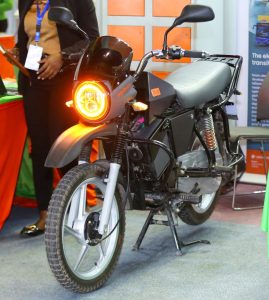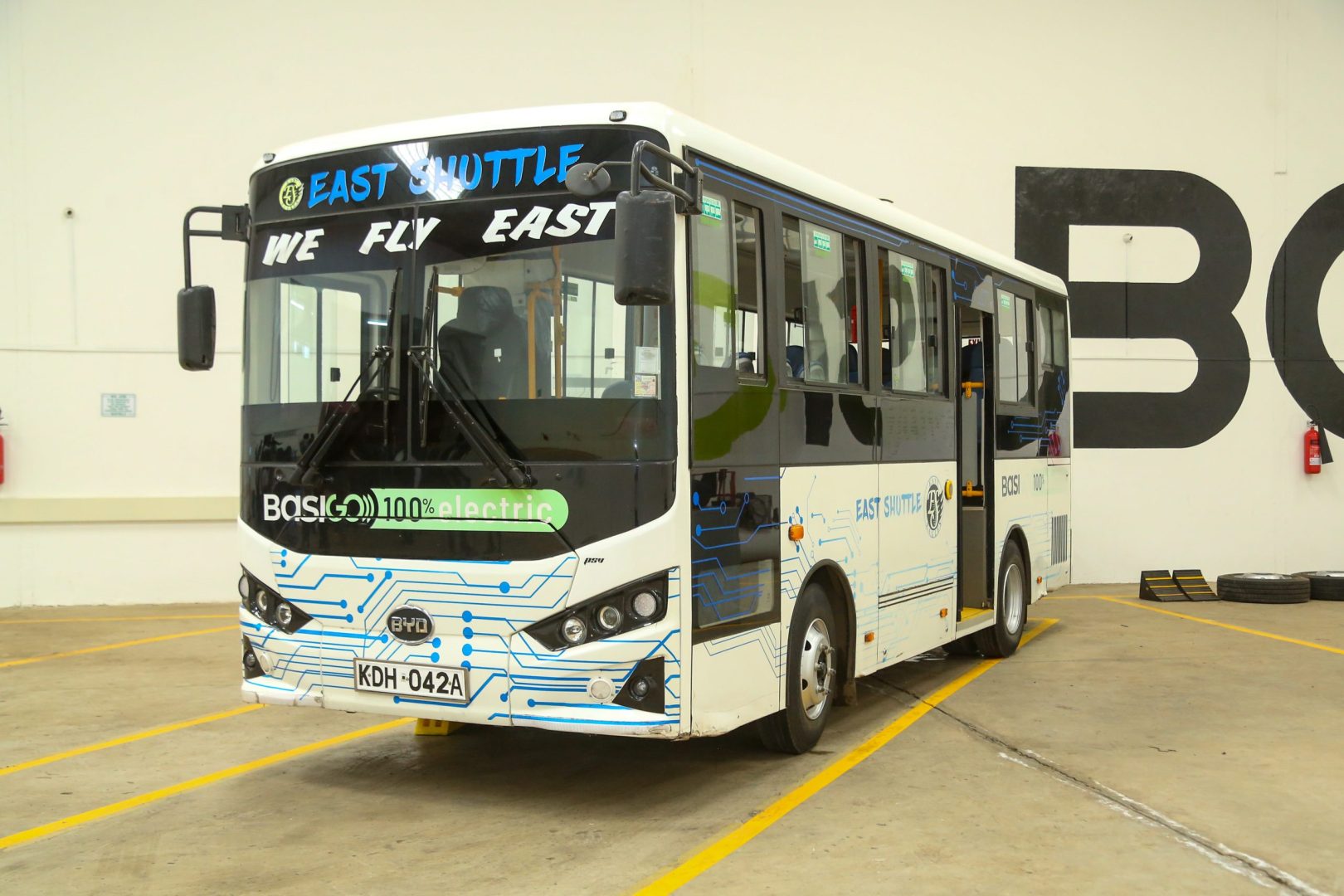With colourful ‘1OO% electric’ stickers on the sides of the taxis, it’s hard to miss the NopeaRide cabs zooming across Nairobi. Most Nairobians were introduced to Electric Vehicles (EVs) for the first time in 2018 with the launch of these cabs. Since then, the demand for environmentally and pocket- friendly vehicles in Kenya has grown.
So far, Kenya has more than 1,000 low-carbon emission cars, and according to the Energy and Petroleum Regulatory Authority (EPRA), there are 350 EVs registered in the country. But with more public and private institutions throwing their hats in the ring for a piece of the pie, this number is rising.

The high cost of living and skyrocketing fuel prices is hastening what would have been a slow EVs market growth. As a result, the sale of hybrid cars, such as the Toyota Prius and Honda Insight, rose by 33% in Kenya in 2021. The trend is also noticeable in the Public Service Vehicles (PSV) industry, with start-ups such as BasiGo introducing EVs into the market.
“We are looking to transform the Public Service Vehicles industry. By having vehicles that release zero tailpipe emissions, you are cleaning the environment. Also, by having a solution that has very little operational costs over time, investment by businesspeople in the matatu industry makes sense,” shared Samwel Waweru, Head of Business Development at BasiGo.
And it’s not just buses and taxis that are eyeing the market. During the Energy Expo held in July 2022 at the Kenyatta International Conventional Centre (KICC), companies such as EB Africa and Roam Electric showcased electric bicycles and motorcycles, respectively, expressing their interest in this emerging market.

“This bike has a motor and battery. Think of it as being on an escalator – it pushes you forward, with peddle assist. You can travel for longer distances without getting tired, as compared to the standard bike,” Sharon Njeri, who works in EB Africa’s Customer Experience department, explained.
EVs are low maintenance since they don’t have an engine, and bring in more profit according to John, a matatu conductor who works for BasiGo along the Dandora-CBD route. He shared that per day, the bus brings in Kshs12,000, compared to a diesel bus which earns, at most, KShs5,000 at the end of the day. “There won’t be much competition with more EVs on the road. It will mean that diesel buses will get rid of the bodies and turn them into cargo-carrying lorries,” he said.
Any other advantages of EVs? They can be recharged at home or at charging stations. Additionally, they have low emissions, they are cost-effective, and they have high mileage.
EVs are also the future, and this, seemingly, has piqued the interest of financial and lending institutions such as NCBA Group. In August 2022, the Group launched a Kshs2 billion EV financing, with customers increasingly purchasing battery-powered cars.
In a statement, the lender revealed that this is part of its green finance strategy. “The five- year deal will see customers enjoy asset financing of up to 80% of the total cost of any personal or public service vehicle they identify. In addition, NCBA will give 10% interest rate on reducing balance offer for electric vehicle loan applications received within the first 90 days,” the statement by NCBA read.
This means that start-ups such as Coast- based Solutions Africa Ltd can breathe easily as lending institutions are now looking to finance EVs. In August 2022, 23-year-old Alijawaad Molu, and 24-year- old Aliakber Khan, founders of Solutions Africa Ltd, launched an eco-friendly electric tuk-tuk. The high school friends aim to reduce carbon emissions by going green and reducing the effects of global warming. Talking about the tuk-tuk named E-Beba, Molu stated: “Charging an electric vehicle is much cheaper compared to the surging fuel prices.” He further explained that the tuk-tuk’s extremely low levels of noise and air pollution will continue to create a healthier, brighter future for Kenya.
For most of these start-ups, things seem to boil down to cost-effectiveness and going green. “We don’t have emissions of carbon dioxide or exhaust fumes, that means it is a cleaner environment, which is healthier for the user,” Elijah Gakomo, Sales Executive for Roam Electric, explained.
“We have a going green movement, and we are offering an alternative mode of transport, with fuel prices being unstable,” Njeri shared. The battery cycle lasts up to 70km, and charging takes two to three hours.
When it comes to the electric motorcycle, Gakomo revealed that its running cost is 68% cheaper than that of a fuel-run motorcycle. “With a single charge, you can cover 100km. That costs about Kshs66 to charge a battery which is 2.9kW. A motorcycle of equivalent output is 150cc and uses two and a half litres of fuel to do 100km,” Gakomo said.
There are, however, hurdles that one needs to think of before buying an EV. The maintenance of EVs may be cheaper due to having fewer moving parts than a diesel vehicle, but their repair is expensive. EVs are new in Kenya’s automotive landscape. It will take longer to diagnose and fix the problem as this is new technology. Like Tesla, which has its service stations, one can’t just walk up to any service centre for maintenance either. The EVs require specific maintenance, service procedures, and high safety standards. This has pushed BasiGo and EB Africa to train their mechanics to work on the buses and bicycles, respectively.
When it comes to EVs, in case of a fire, the driver can’t use water. EVs have a specific extinguisher since the batteries burn at a much higher temperature. EVs may also lose battery power in areas like Meru, Limuru, and Nanyuki which are prone to very low temperatures.

 A BasiGo’s Electric Bus that is offering long range, improved reliability, and lower operating costs than a diesel bus.
A BasiGo’s Electric Bus that is offering long range, improved reliability, and lower operating costs than a diesel bus.









